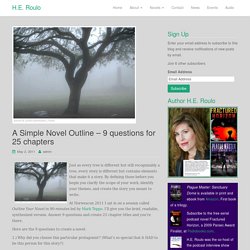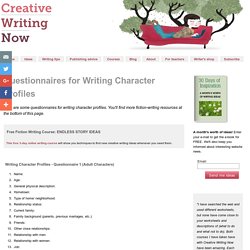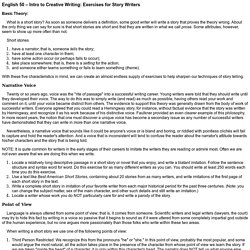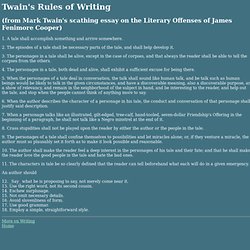

20 Common Grammar Mistakes That (Almost) Everyone Makes. I’ve edited a monthly magazine for more than six years, and it’s a job that’s come with more frustration than reward.

If there’s one thing I am grateful for — and it sure isn’t the pay — it’s that my work has allowed endless time to hone my craft to Louis Skolnick levels of grammar geekery. As someone who slings red ink for a living, let me tell you: grammar is an ultra-micro component in the larger picture; it lies somewhere in the final steps of the editing trail; and as such it’s an overrated quasi-irrelevancy in the creative process, perpetuated into importance primarily by bitter nerds who accumulate tweed jackets and crippling inferiority complexes.
But experience has also taught me that readers, for better or worse, will approach your work with a jaundiced eye and an itch to judge. While your grammar shouldn’t be a reflection of your creative powers or writing abilities, let’s face it — it usually is. Who and Whom This one opens a big can of worms. Which and That Lay and Lie Moot Nor. Oxymoron Finder. Editing Wizard. 25 Things Every Writer Should Know. An alternate title for this post might be, “Things I Think About Writing,” which is to say, these are random snidbits (snippets + tidbits) of beliefs I hold about what it takes to be a writer.

I hesitate to say that any of this is exactly Zen (oh how often we as a culture misuse the term “Zen” — like, “Whoa, that tapestry is so cool, it’s really Zen“), but it certainly favors a sharper, shorter style than the blathering wordsplosions I tend to rely on in my day-to-day writing posts. Anyway. Peruse these. Absorb them into your body. Let your colonic flora digest them and feed them through your bloodstream to the little goblin-man that pilots you. Feel free to disagree with any of these; these are not immutable laws.
Beware Of Writer. I’ve seen a meme bouncing around that reveals reasons why you shouldn’t ever date a writer. It’s true, to a point. But I think it goes even deeper than that. Frankly, you should probably get the hell away from us. Book Ideas for Young Writers. A Simple Novel Outline - 9 questions for 25 chapters & H.E. Roulo. Just as every tree is different but still recognizably a tree, every story is different but contains elements that make it a story.

By defining those before you begin you clarify the scope of your work, identify your themes, and create the story you meant to write. At Norwescon 2011 I sat in on a session called Outline Your Novel in 90-minutes led by Mark Teppo. I’ll give you the brief, readable, synthesized version. Answer 9 questions and create 25 chapter titles and you’re there. Here are the 9 questions to create a novel: 1.) 2.) 3.) 4.) 5.) 6.) 7.) 8.) 9.)
Now, with those 9 questions answered to your satisfaction, try to fill in a 25 chapter, 75,000 word outline. Chapters 7-18 are the middle of your book. Chapters 19-25 depict the heroic act to victory. Wasn’t that easy? Okay, sure, the work isn’t done yet. Using the idea that there are 25 chapters, I outlined my current work in progress. Questionnaires for Writing Character Profiles - Creative Writing Help. Enter your e-mail to get the e-book for FREE.

We'll also keep you informed about interesting website news. "I have searched the web and used different worksheets, but none have come close to your worksheets and descriptions of (what to do and what not to do). Both courses I have taken have with Creative Writing Now have been amazing. Each time I have learned something new. The one thing I love, you take everything apart and give examples. " - Katlen Skye "As usual - I already love the course on Irresistible Fiction, rewriting a lot and improving greatly even after the first lesson. “Essentials of Fiction proved that I could indeed write and I wrote every day, much to my boyfriend's dismay (waa sniff).” - Jill Gardner "I am loving the course and the peer interaction on the blog is fantastic!!!
" "I'm enjoying the weekly email course, Essentials of Poetry Writing. "Thank you for all the material in this course. "Thanks very much for this course. Exercises for Fiction Writers - Page 2. English 50 Exercises for Story Writers. English 50 – Intro to Creative Writing: Exercises for Story Writers Basic Theory: What is a short story?

As soon as someone delivers a definition, some good writer will write a story that proves the theory wrong. About the only thing we can say for sure is that short stories are short and that they are written in what we call prose. Some attributes, however, seem to show up more often than not. Short stories have a narrator; that is, someone tells the story; have at least one character in them; have some action occur (or perhaps fails to occur); take place somewhere; that is, there is a setting for the action; and someone either learns something or fails to learn something (theme).With these five characteristics in mind, we can create an almost endless supply of exercises to help sharpen our techniques of story telling.
Narrative Voice Twenty or so years ago, voice was the "rite of passage" into a successful writing career. Twain's Rules of Writing. 1.

A tale shall accomplish something and arrive somewhere. 2. The episodes of a tale shall be necessary parts of the tale, and shall help develop it. 3. The personages in a tale shall be alive, except in the case of corpses, and that always the reader shall be able to tell the corpses from the others. 4.